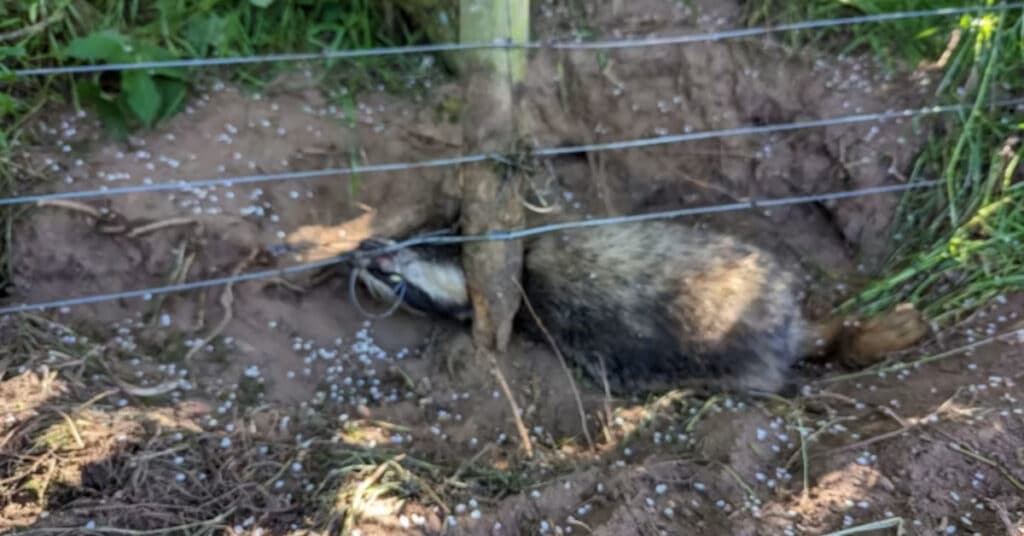Updated sentencing guidelines for animal cruelty offences that reflect changes introduced by the Animal Welfare (Sentencing) Act 2021, were published today by the Sentencing Council. For the first time, a new ‘Animal cruelty’ guideline gives judges and magistrates in England and Wales guidance for sentencing the most serious animal cruelty offences, including causing unnecessary suffering, tail docking and animal fighting.
The Council developed the guideline after the Animal Welfare (Sentencing) Act 2021 increased the maximum penalty for these offences from six months to five years’ custody.
A second guideline also published today, ‘Failure to ensure animal welfare’, revises elements of the Council’s existing animal cruelty sentencing guideline and applies to offences under section 9 of the Animal Welfare Act 2006: breach of duty of person responsible for animal to ensure welfare.
This revised guideline, which applies in magistrates’ courts only, includes new aggravating factors for a significant number of animals harmed, the offender having a professional responsibility for the animals and offence motivated by financial gain.
Both guidelines have been developed in accordance with the Council’s usual procedures, which include public consultation and analysis of current sentencing practice. The guidelines, which apply to adults only, come into force on 1 July 2023.
Sentencing Council member Her Honour Judge Rosa Dean, said:
“Animal cruelty is a serious offence and animals can experience untold suffering at the hands of people who they trust to look after them, including being left in appalling conditions or forced to fight each other for money.
“The new guidelines will guarantee that courts have the powers to deliver appropriate sentences to offenders who mistreat animals.”
Under the updated guidelines, sentences for the most serious offences would be expected to increase. Sadistic or extreme cases or cases involving prolonged incidents of serious cruelty will be assessed at the highest culpability. Cases involving multiple incidents or the use of significant force will also increase an offender’s culpability.
Where an offender’s actions have caused an animal to die or sustain life-threatening injuries, or have caused substantial pain or suffering, this may also attract a higher sentence than previously. Where a case affects a significant number of animals, involves images of the cruelty being shared on social media, or is committed in the presence of children, these will now be treated as aggravating factors.
- These guidelines apply to offences contrary to the following sections of the Animal Welfare Act 2006: section 4 (causing unnecessary suffering), section 8 (involvement in an animal fight) and section 9 (breach of duty of person responsible for animal to ensure welfare).
- The guidelines were last revised in 2017 and until 2021, the offences it covered were summary only, triable in magistrates’ courts and subject to a maximum penalty of 6 months’ custody.
- In 2021, Parliament passed the Animal Welfare (Sentencing) Act, which increased the maximum sentence for specific offences under the 2006 Act from six months to five years’ custody and made these either way offences, meaning they could be heard in magistrates’ courts or the Crown Court.
- Following the 2021 Act and the increase in maximum penalties, the Council issued interim guidance for sentencing offences committed on or after 29 June 2021. The following offences were impacted by the change:
- Causing unnecessary suffering (section 4, Animal Welfare Act 2006);
- Carrying out a non-exempted mutilation (section 5, Animal Welfare Act 2006);
- Docking the tail of a dog except where permitted (section 6(1) and 6(2), Animal Welfare Act 2006);
- Administering a poison to an animal (section 7, Animal Welfare Act 2006); and
- Involvement in an animal fight (section 8, Animal Welfare Act 2006).
- Sentencing guidelines must be followed unless the court is satisfied that it would be contrary to the interest of justice to do so in all the circumstances of a particular case.

